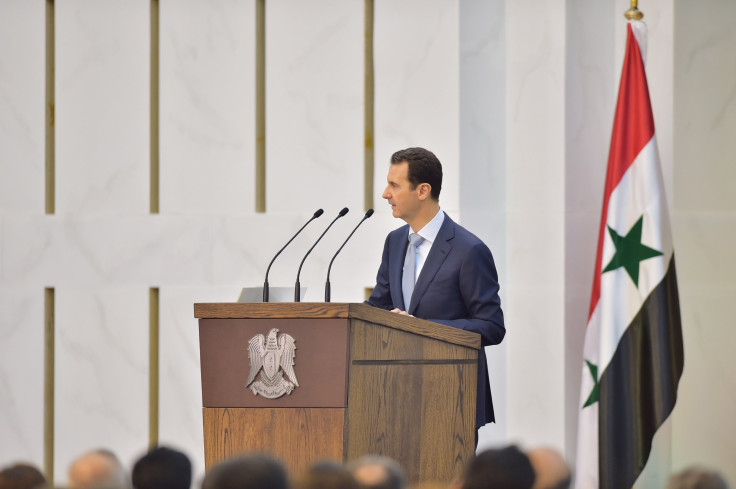Syria's Assad Admits Prolonged Civil War Has Created Serious Troop Shortage

The Syrian army, after nearly five years of civil war, has had no choice but to prioritize strategic areas and cede other regions to rebel fighters, President Bashar Assad said. The statement was a rare admission from the Syrian leader that his country no longer has the resources necessary to control fighting within its borders.
“Sometimes, in some circumstances, we are forced to give up areas to move those forces to the areas that we want to hold onto,” Assad said in a speech to government officials in Damascus, quoted by BBC News. “We must define the important regions that the armed forces hold onto so it doesn't allow the collapse of the rest of the areas.”
At one time the Syrian army had more than 300,000 troops though that number is now believed to be closer to 150,000 because so many soldiers have been killed or defected because of ongoing morale issues. Assad said he expects the remaining force to be enough to protect Damascus and other strategic cities. The admission comes amid growing questions about the Assad regime's future, with important cities like Aleppo and Deraa expected to fall into rebel hands.
The war has its roots in the 2011 Arab Spring when the Assad regime responded to protests with an increasingly harsh series of crackdowns. The demonstrations morphed into armed rebellion from a number of Syrian splinter groups, ranging from al Qaeda offshoots to CIA-backed so-called moderate forces. Roughly 250,000 Syrian civilians are believed to have been killed and millions displaced since the conflict began.
Nearly 75,000 Syrian men have avoided serving the Syrian government in a military capacity, according to the Syrian Observatory for Human Rights. Assad also announced a general amnesty for deserters and those who have avoided military duty in his speech Saturday.
“We are not collapsing. We are steadfast and will achieve victory,” Assad said. “Defeat does not exist in the dictionary of the Syrian Arab army.”
© Copyright IBTimes 2024. All rights reserved.





















